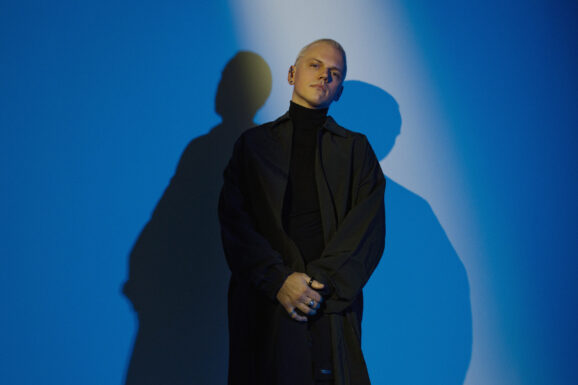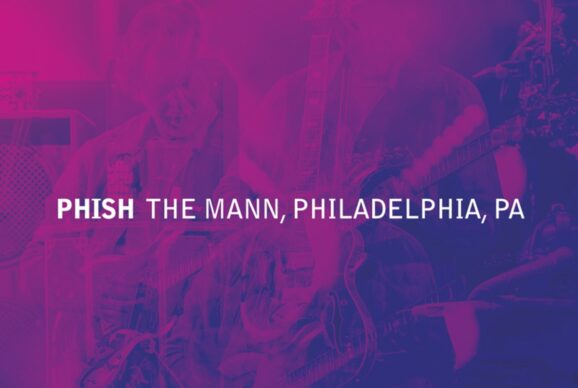For the first decade-plus of Ghost’s lifespan, anonymity was everything. Surrounded by a cultivated air of mystery, the band features musicians in identical costumes and masks only referred to as Nameless Ghouls the front man Papa Emeritus, an incarnation of a Satanic pope figure in full mask and regalia. It provided striking imagery, adding further intrigue to a band that was already able to create effective juxtaposition of metal and heavy rock with poppy melodies, catchy choruses, and lyrics about Satan. Last year, however, anonymity was stripped away as former band members sued the man behind Papa Emeritus, Tobias Forge. Forge has since publicly revealed himself as not only the band’s vocalist, but the primary song writer, director, and creator of all things Ghost.
While you might expect this unmasking to change things drastically—and yes, narratively at least, they have—the core of Ghost remains the same. As with every previous album, Forge/Ghost has given us a “new” lead singer, this time a lower ranking official within the band’s Satanic church, Cardinal Copia. Within the narrative framework of the band, Copia’s turn at the wheel is seen as something of an audition, proving himself worthy to hold the title of Papa Emeritus, which is an interesting, if somewhat divisive, approach. Regardless of the theatrics, behind the curtain it is business as usual. Thrusting all efforts of the band, Forge sets out to push Ghost to its poppiest and most accessible limits with the band’s fourth full length album, Prequelle.
Prequelle comes front loaded with its heaviest tracks (and subsequently, the ones that sound the Ghostiest) on the album leading it off. The first single, “Rats,” is tailormade to be an 80’s-style arena rock opener. It’s a strong, if not a little unspectacular, guitar driven track with solid melodic elements in its pre-chorus. It’s in the closing minute, however, which features a keyboard melody reminiscent of the instrumental “Spoksonat” from their previous album, Meliora, that Ghost provides crushing metal bliss. It’s a shame that this portion of the song wasn’t stretched out and built from the ground up.
From there, a lead guitar noodles and harmonizes leading straight into the low string guitar groove of the Prequelle’s heaviest track, and major album highlight, “Faith.” It easily has the best guitar riffing on the album, with leads sweeping in between its huge, catchy chorus and next verse. It is the perfect blend of heavy and melodic that Ghost has been able to master over their evolution.
Where Ghost fans may start to hear some noticeable differences in style is with the track “See the Light.” The song begins entirely led by a rhythm section and piano before exploding into a massive power ballad chorus. Though the chorus features distorted chugging guitars, the piano continues to do the heavy lifting. Through choirs and layered vocal harmonies, this is also Forge’s strongest vocal performance on Prequelle. Lyrically, the meanings seem twofold. On the one hand, it certainly plays well in the Ghost sandbox, with its vaguely evil façade that evokes perfectly their poppy darkness; on the other we have Forge belting out “every day that you feed me with hate, I grow stronger” over the chorus, which is far from the only potential reference we have to the ongoing lawsuit.
The poppy streaks continue with “Dance Macabre,” a fun, dancey, and completely infectious number that has Forge digging into his Swedish roots and evoking ABBA. Again, we have guitars taking a back seat to the rhythm section and pianos in its verses before heading into a chorus that is 100% earworm goodness. Forge’s knack for playful wordplay is on full display with the lyric “wanna bewitch you in the moonlight,” almost begging you to mishear it as “wanna be whichoo.” It’s a deliriously upbeat track that somehow manages to have a bit of an edge and a pretty killer guitar solo. If Ghost were ever to break into the massive mainstream, this would be the song to do it.
The album features two instrumentals, both of which exceed five minutes in length. “Miasma” is a fun display that has already served as a great interlude and costume change period during the live show. The later song, “Helvetesfonster,” however is a full-fledged musical journey that sees Forge pull out even more things from his bag of tricks. With use of a flute and even more pianos, and clearly divided into sections, it’s the closest thing that Forge has ever come to creating a film score. The dénouement of the song comes with a gorgeous, simple, almost Folk-metalesque melody that is quite possibly the best piece of music that Forge has ever written for Ghost. Though the instrumentals are good and allow Ghost to flex their musical muscles, these tracks plus the intro leads to only having 7 full songs with vocals on the album. Having both feels a tad superfluous and non-essential, especially considering they take up a quarter of the album’s run time.
Forge’s ambition also manifests itself in different soundscapes and instrumentation. Everywhere you listen, there’s harmonized vocals, choirs, tambourines, and even a saxophone. Forge also turns the piano/keyboard into a primary instrument for the band for the first time, as heard in the aforementioned “See the Light” and especially in “Pro Memoria.” It is a departure for a band that has almost exclusively relied on guitars as its musical backbone.
In interviews as himself, Forge has compared his work with Ghost similar to the way a film director makes a film. It is a comparison that feels particularly apt with Prequelle as it feels the most wholly thematically composed album that Ghost has ever done. Certain themes pop up throughout and the album feels theatrical, orchestral and borderline cinematic in its presentation.
Even though there are a lot of successful elements, Prequelle is still an album with some flaws. Lyrically, it isn’t the most compelling and witty thing that Ghost has ever done. Usually heavy on the double entendre and dark in imagery, the lyrics are decidedly less Satanic and more straight forward. There are also songs like “Witch Image,” which skews a little generic and rock-radio and the album closer “Life Eternal” which never quite feels like a complete song.
Still, if Prequelle proves anything, it is that Forge is a man that is in firm charge of the direction of his band. He succeeds in turning the album into something that Ghost has never done before. It is easily the poppiest and most accessible and although the album is about the dark ages and the plague, it doesn’t feel as dark, musically or lyrically, as their previous output. It’s a full embrace of the poppy elements of the band, and a swing at creating an entire album of catchy chorus with heavy music and dark imagery. It feels more ballad than banger, but Prequelle is a worthy entry into the already strong Ghost discography, even if it isn’t their pinnacle.











